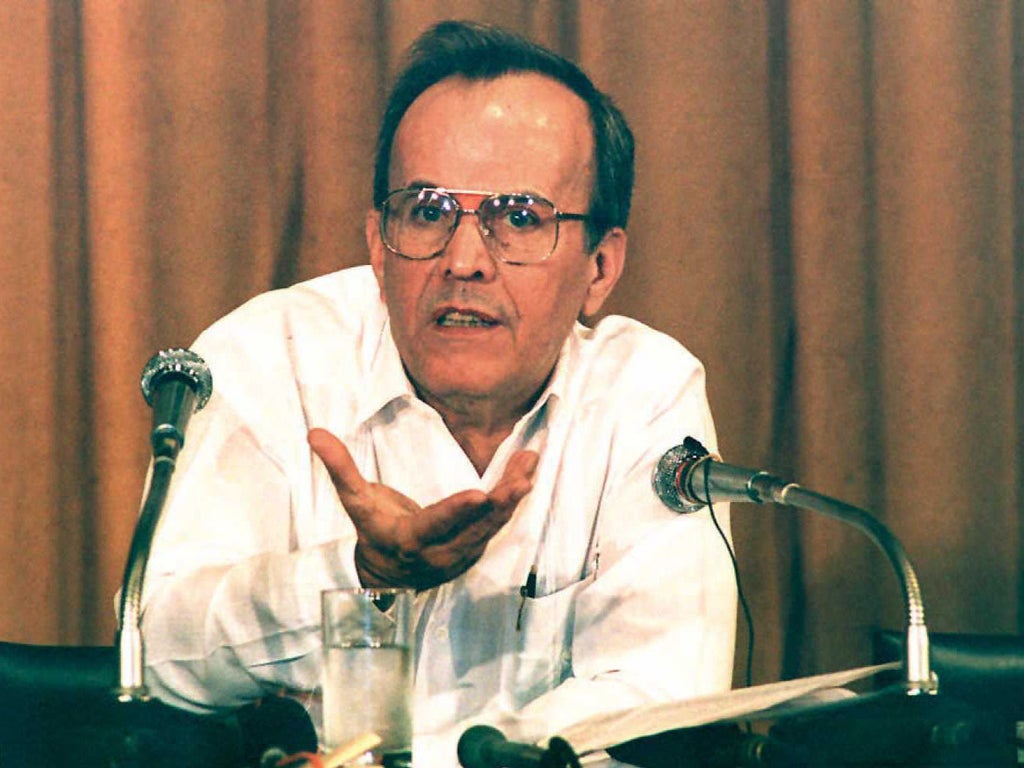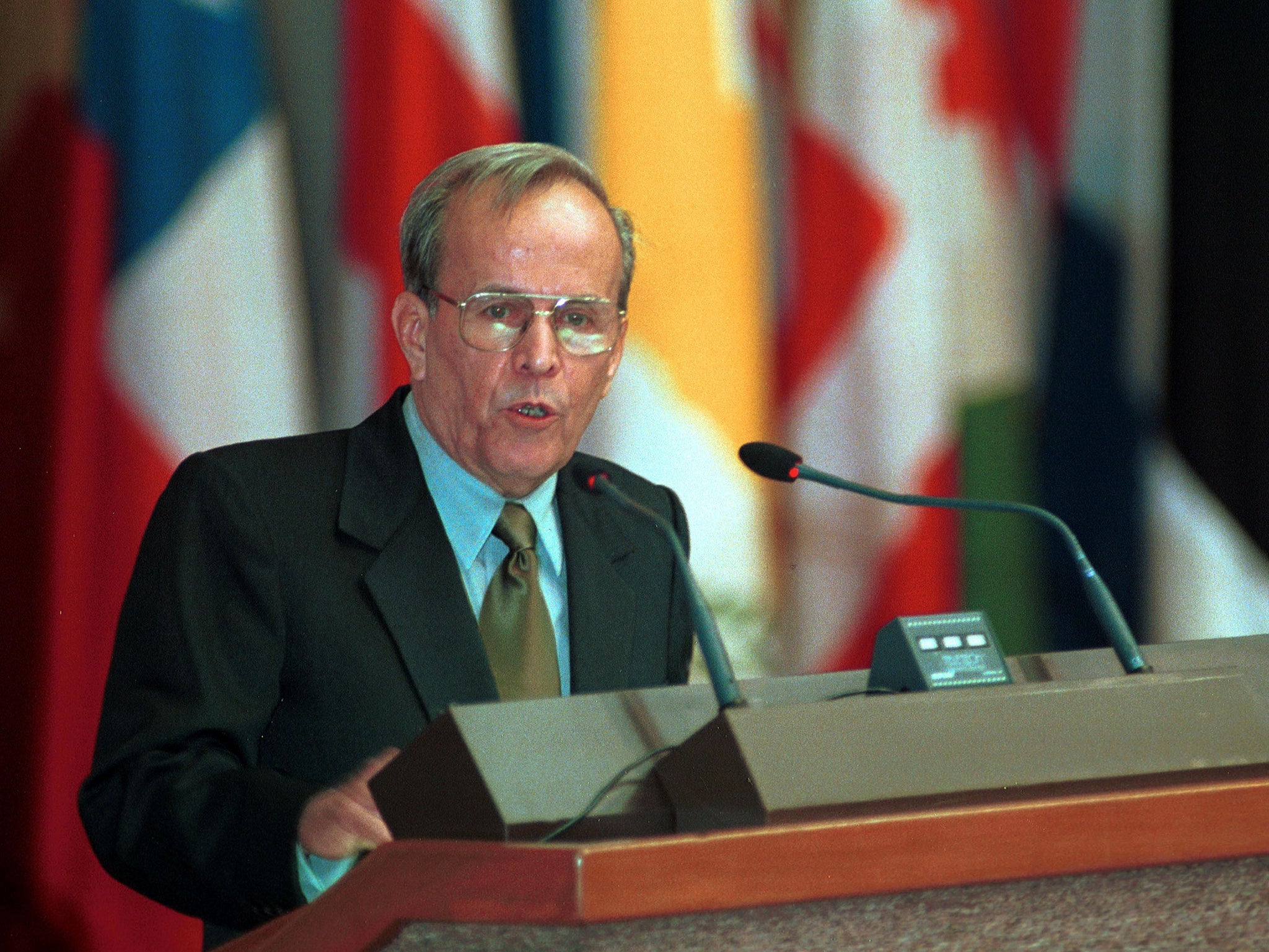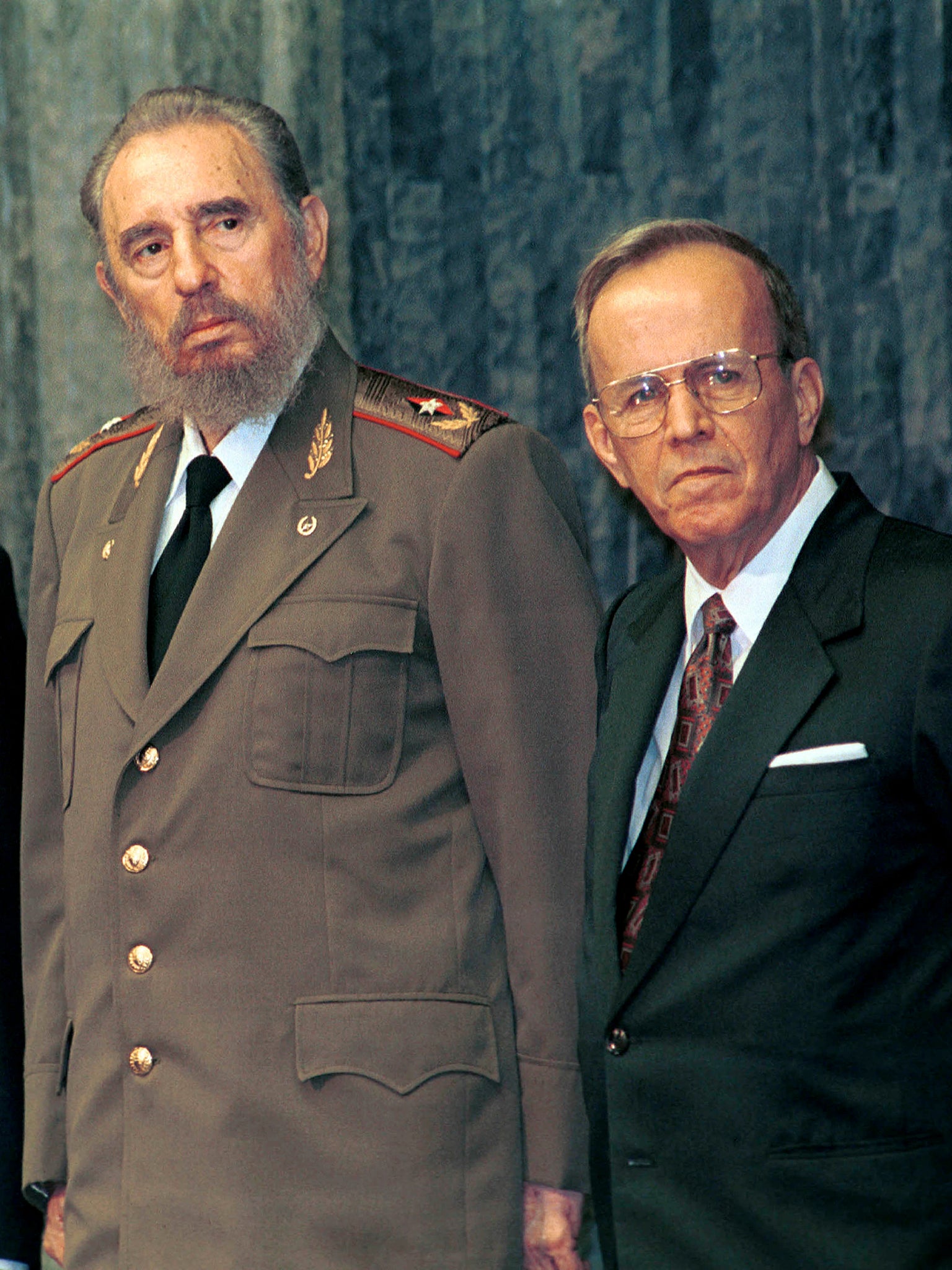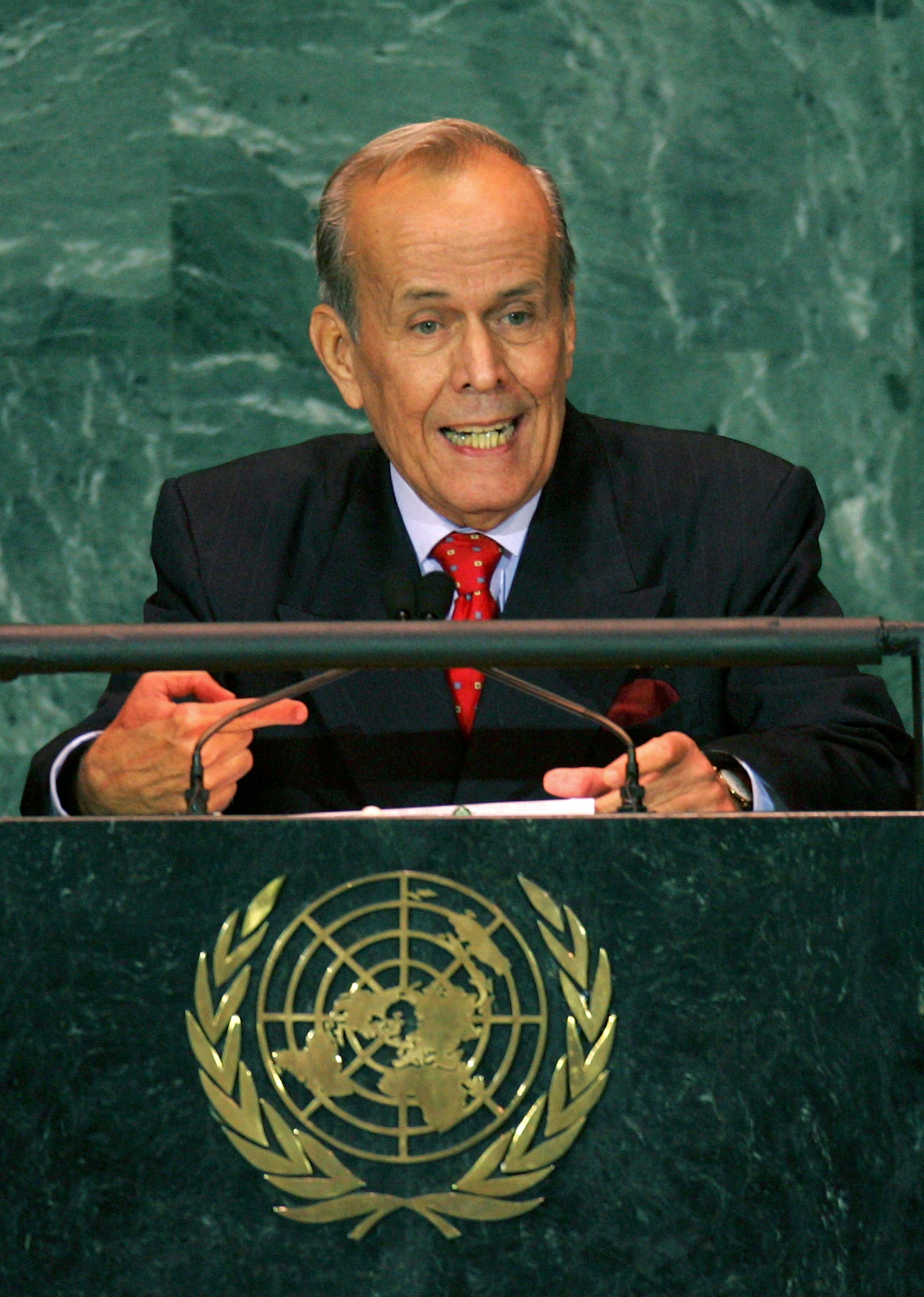
Ricardo Alarcón, a former Cuban foreign minister who became the island’s most powerful politician behind ruler Fidel Castro and his brother and successor Raúl, and who played a central role in the Elián González custody saga, has died aged 84.
Alarcón had been a major player in the 1959 Cuban revolution, as a civilian rather than a fighter. As a young communist in Havana during the late 1950s, he organised students while the Castro brothers, along with the Argentine guerrilla Ernesto “Ché” Guevara, sailed from Mexico and fought their way across the island to oust US-backed dictator Fulgencio Batista.
When appointed by Fidel Castro as ambassador to the United Nations in 1966, at just 29, he was among the youngest national representatives on the world body. Later, as foreign minister, he was a driving force behind the UN general assembly’s 1992 resolution condemning the 30-year-old US economic embargo on Cuba.
But as foreign minister and president of the Cuban national assembly (parliament) for two decades, he also played a key role in thawing relations with the US in the last years of the 20th century.
In 1994, Alarcón reached an immigration agreement with president Bill Clinton that halted a mass exodus of tens of thousands of Cubans on makeshift rafts to Florida, during which many Cubans, some sailing in truck tyre inner-tubes, died in the straits of Florida. In September that year, Clinton agreed to issue 20,000 immigrant visas a year to Cuban citizens seeking to leave the island.
By the time US-Cuban relations were significantly thawed by president Barack Obama and Cuba’s then president Raúl Castro in 2014 – Fidel had handed over full power to his younger brother in 2008 – Alarcón had been mysteriously sidelined and disappeared from public view.
As president of the national assembly from 1993 to 2013, Alarcón would have been the most likely to be called on to take over the presidency of Cuba, at least on an interim basis, had the ageing Fidel and Raúl died or become incapacitated. Cuban state media cited “health reasons” for his sudden retreat from visibility.

But United Press International reported at the time that, although Alarcón had been a right-hand man to Fidel, Raúl had seen him as a potential threat and had him nudged out as leader of the national assembly.
Henceforth, he became one of Cuba’s most prominent diplomats and politicians, puffing on a Cohiba cigar while wearing the island’s traditional white guayabera shirt rather than the military fatigues worn by Fidel Castro and Guevara.
Because of his fluent English, he became the “go to” interviewee for American TV networks trying to get a handle on Cuban policies, but his line was no softer than that of any Cuban leader. In many of those interviews, he described the US economic embargo on Cuba as “genocide”, saying many Cubans were starving to death.

As president of the national assembly, he led Cuba’s efforts to free five of its intelligence agents who had been detained in Florida, accused of spying, in 1998 and later convicted. Alarcón insisted they had not been spying on the US government but trying to infiltrate Miami-based Cuban groups they accused of organising “terrorist” attacks in Havana. The five were eventually released between 2011 and 2014 and returned to Cuba.
Alarcón was also a pivotal figure in the much-publicised 2000 legal battle over Elián González, a five-year-old Cuban boy who had been found curled up in a large truck inner-tube off Fort Lauderdale, Florida, in November 1999. He, his mother and 12 others had left Cuba in a small boat whose engine failed in the Florida straits, forcing them to float in inflated inner-tubes they had dragged behind the boat in case of an emergency. His mother placed her son in an inner-tube, but she and 10 others perished while the boy and two others survived.
Through the first half of 2000, a bitter legal battle ensued over whether Elián should stay with relatives in Florida or be returned to his divorced father, Juan Miguel González, in Cuba as demanded by Alarcón – serving as the father's personal adviser – as well as by President Fidel Castro.

The saga dragged on until heavily armed US Border Patrol agents launched a pre-dawn raid on 22 April 2000, on the Miami home where the boy was staying with relatives. The agents took the boy to Joint Base Andrews in Maryland, where his father had been flown in to meet him.
After several more weeks of legal wrangling, with Alarcón continuing to push for Elián's return, father and son were flown to Cuba on 28 June, seven months and one week after the boy had sailed from its shores.
Ricardo Alarcón de Quesada was born in Havana on 21 May 1937, to an upper middle-class family. In 1954, he entered the University of Havana, graduating with a doctorate in philosophy and humanities before the revolution. While a student, he joined the clandestine revolutionary July 26 Movement, named after a 26 July 1953 attack on a Cuban army barracks, led by a young Fidel Castro, in a failed attempt to overthrow Batista.
At university, Alarcón eventually led the University Students’ Federation and the Union of Young Communists, making him a key figure in recruiting urban support for Castro, at the time in exile in Mexico. The July 26 Movement eventually succeeded when Batista fled the island and Castro, who had landed on a small motor launch from Mexico in 1956 with his brother, Guevara, and 79 other men, took control of the country in January 1959.
Alarcón was only 25 when Castro appointed him director of the Americas division at the foreign affairs ministry in 1962. From 1966 to 1978 and from 1990 to 1991, he served as Cuba’s permanent representative to the United Nations, including a spell as vice president of the UN general assembly and two one-month terms as president of the UN security council in February 1990 and July 1991.
Recalled to the island, he was named foreign minister by Castro in 1992 but moved on to become president of the national assembly the following year.
Alarcón's wife, Margarita Perea Maza, died in 2008. Details of other surviving family were not immediately known.
Ricardo Alarcón, Cuban politician and diplomat, born 21 May 1937, died 30 April 2022
© The Washington Post







